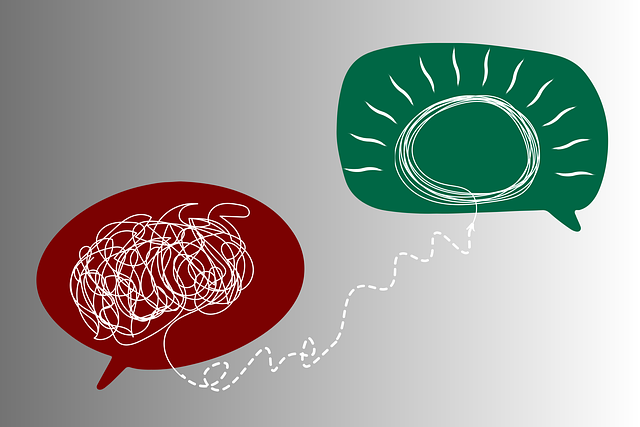Longmont Women's Issues Therapy offers powerful mental wellness group facilitation, creating supportive communities where women share experiences and learn from one another. Through structured sessions led by professionals, participants gain open communication skills, self-awareness, and healthy coping strategies, fostering a sense of belonging and building resilience. This safe environment encourages peer support, compassion cultivation, and emotional healing techniques, making it an effective and holistic approach to mental health support that reduces the need for intensive risk assessments.
Mental wellness group facilitation plays a pivotal role in enhancing the therapeutic journey, especially for women navigating unique challenges. This article delves into the art of group therapy, exploring its benefits and the special dynamics it offers. We’ll guide you through effective techniques to foster a safe haven where participants feel empowered to share and grow. From building trust to strategic facilitation tailored to women’s issues, discover how these methods create a supportive environment for collective healing and individual transformation, potentially transforming lives in Longmont Womens Issues Therapy.
- Understanding the Role of Group Facilitation in Mental Wellness
- – Importance and benefits of group therapy
- – Unique dynamics of group settings for mental health support
- Techniques to Create a Safe and Supportive Environment
Understanding the Role of Group Facilitation in Mental Wellness

Mental wellness group facilitation plays a pivotal role in fostering collective support and enhancing individual well-being, particularly in settings like Longmont Women’s Issues Therapy. Through structured group sessions, facilitators create safe spaces where members can share experiences, gain insights, and offer mutual support. This dynamic approach goes beyond traditional therapy by empowering individuals to navigate challenges collectively.
Effective group facilitation encourages open communication, promotes self-awareness exercises, and facilitates the development of healthy coping mechanisms like anxiety relief strategies. Members learn from one another’s journeys, fostering a sense of belonging and community. By integrating self-care routine development for better mental health into group dynamics, facilitators enable participants to gain valuable tools for maintaining and improving their overall mental wellness.
– Importance and benefits of group therapy

Group therapy offers a unique and powerful approach to mental wellness, especially tailored for individuals seeking support and shared experiences in a group setting. This therapeutic model provides a safe space where participants can connect with peers facing similar challenges, fostering a sense of belonging and understanding. One of the key advantages of Longmont Women’s Issues Therapy is its ability to enhance emotional healing processes through peer support and compassion cultivation practices.
In a group environment, individuals can benefit from the collective wisdom and diverse perspectives of their peers, leading to improved coping mechanisms and enhanced resilience. The dynamic nature of group therapy encourages open communication, allowing members to explore their thoughts and feelings in a supportive atmosphere. This not only accelerates personal growth but also promotes a sense of empowerment, making it an effective strategy for those navigating complex mental health issues. Additionally, the Risk Assessment for Mental Health Professionals becomes less pertinent in well-facilitated groups where trained therapists guide participants through emotionally healing processes.
– Unique dynamics of group settings for mental health support

Group settings offer a unique environment for mental health support, providing an opportunity for individuals to connect and share their experiences in a safe and supportive space. Unlike individual therapy sessions, groups allow people to witness and learn from one another’s journeys, fostering a sense of community and understanding. This dynamic encourages open dialogue and promotes the development of inner strength as members draw upon shared resilience.
In these settings, individuals can engage in compassion cultivation practices, learning to extend kindness and empathy not only to themselves but also to their peers. The group context facilitates emotional healing processes as participants process trauma, manage stress, and explore coping strategies together. Techniques like active listening, mindfulness exercises, and peer support networks thrive in such environments, creating a powerful tool for holistic mental wellness at centers like Longmont Womens Issues Therapy, where the focus is on nurturing personal growth and well-being.
Techniques to Create a Safe and Supportive Environment

Creating a safe and supportive environment is paramount for effective group facilitation, especially when addressing sensitive topics like women’s issues. Facilitators should foster an atmosphere where participants feel seen, heard, and respected. This involves establishing clear boundaries and ground rules from the outset, ensuring confidentiality and encouraging active listening among members. Using inclusive language and promoting cultural sensitivity in mental healthcare practice helps create a welcoming space.
Additionally, incorporating elements from the Mental Wellness Podcast Series Production can enhance engagement. Sharing relevant resources, stories, or experiences—while adhering to ethical guidelines—can spark meaningful conversations. The goal is to make each session feel like a safe haven where participants can openly discuss their challenges and celebrate victories without fear of judgment. Such an environment facilitates healing and growth, making sessions beneficial for all involved, especially those seeking Longmont Women’s Issues Therapy.
Group facilitation plays a pivotal role in enhancing mental wellness, offering a unique and beneficial approach to therapy. By fostering a safe and supportive environment, as seen in techniques employed by Longmont Women’s Issues Therapy, group settings allow individuals to connect, share experiences, and gain insights from one another. This collective support network not only amplifies the impact of therapy but also empowers participants with valuable coping mechanisms and a sense of community. Embracing these facilitation techniques can significantly contribute to improved mental health outcomes.













